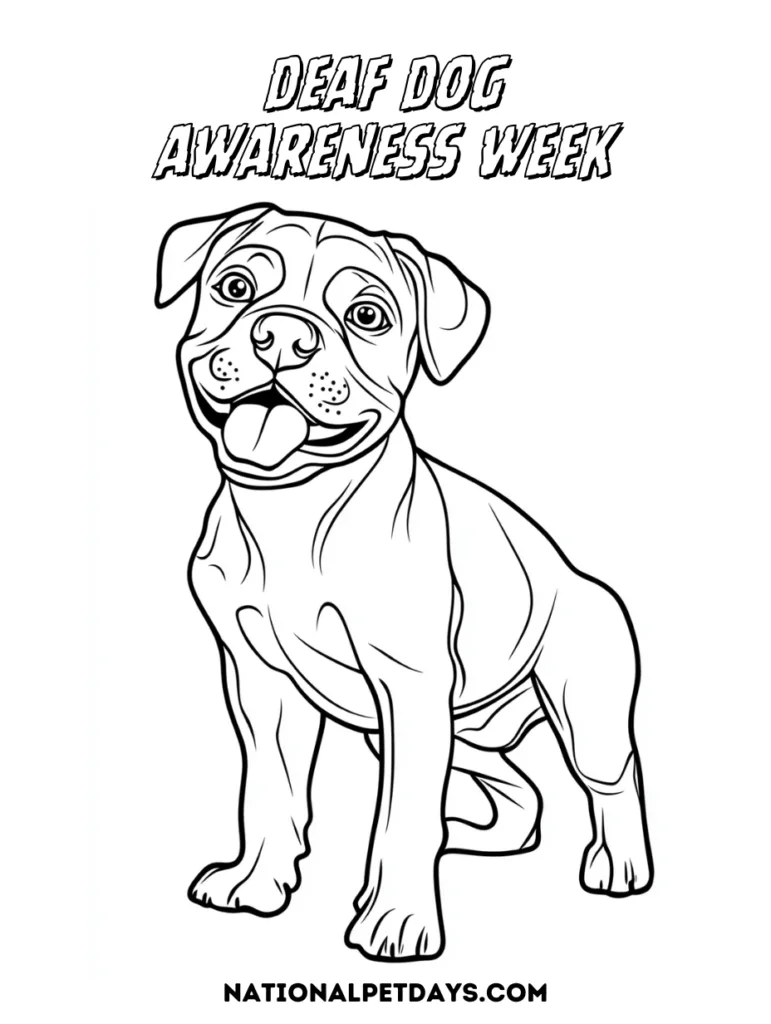Deaf Dog Awareness Week, observed annually during the last full week of September, is a time to shine a spotlight on deaf dogs and the unique challenges they face. These amazing dogs, despite their hearing impairment, are just as capable of leading happy, fulfilling lives as any other dog.
This week encourages people to consider adopting deaf dogs and emphasizes the importance of understanding and using visual communication methods, like hand signals, to train and bond with them. It’s a celebration of resilience, adaptability, and the deep connections that can be formed with these special pets.

Why Are Some Dogs Born Deaf?
Some dogs are born deaf due to genetic factors, which can affect certain breeds more than others. Congenital deafness, often linked to coat color, is common in breeds with predominantly white or merle coats, like Dalmatians, Australian Shepherds, and Bull Terriers. This condition occurs when the cells responsible for producing pigment (melanin) in the inner ear are absent, leading to deafness.
It can also be caused by developmental issues during the dog’s early stages of life. While deafness can present challenges, many deaf dogs live happy, healthy lives with proper training and care.
How Can You Tell if Your Dog May Be Deaf?
You might suspect your dog is deaf if they don’t respond to sounds that typically catch their attention, such as clapping, calling their name, or squeaky toys.
Other signs include a lack of response to household noises like doorbells or vacuum cleaners, excessive barking (as they may not hear themselves), or being startled easily when approached from behind. If you notice any of these signs, it’s important to consult with a veterinarian who can perform specific tests to confirm if your dog is deaf.
